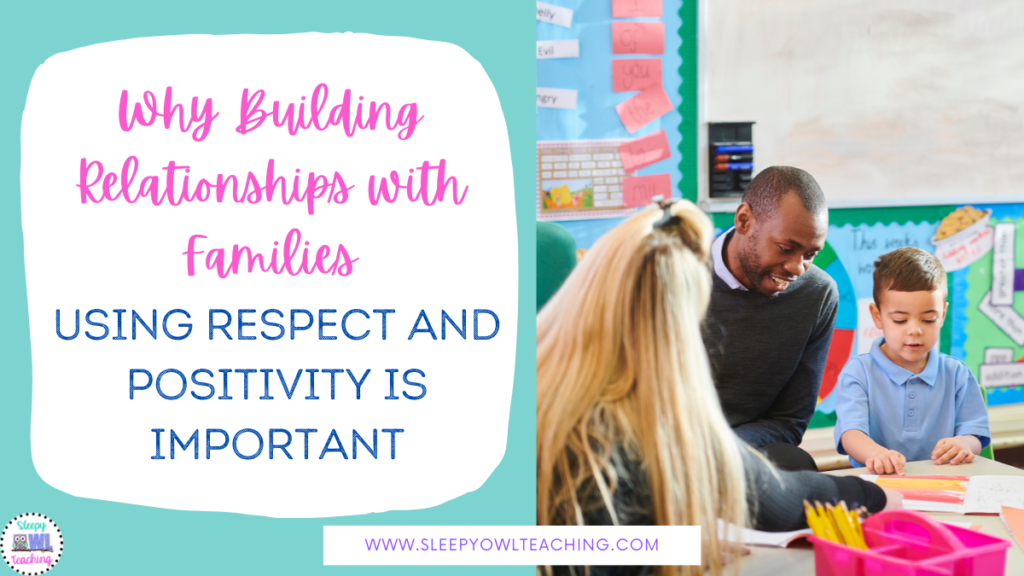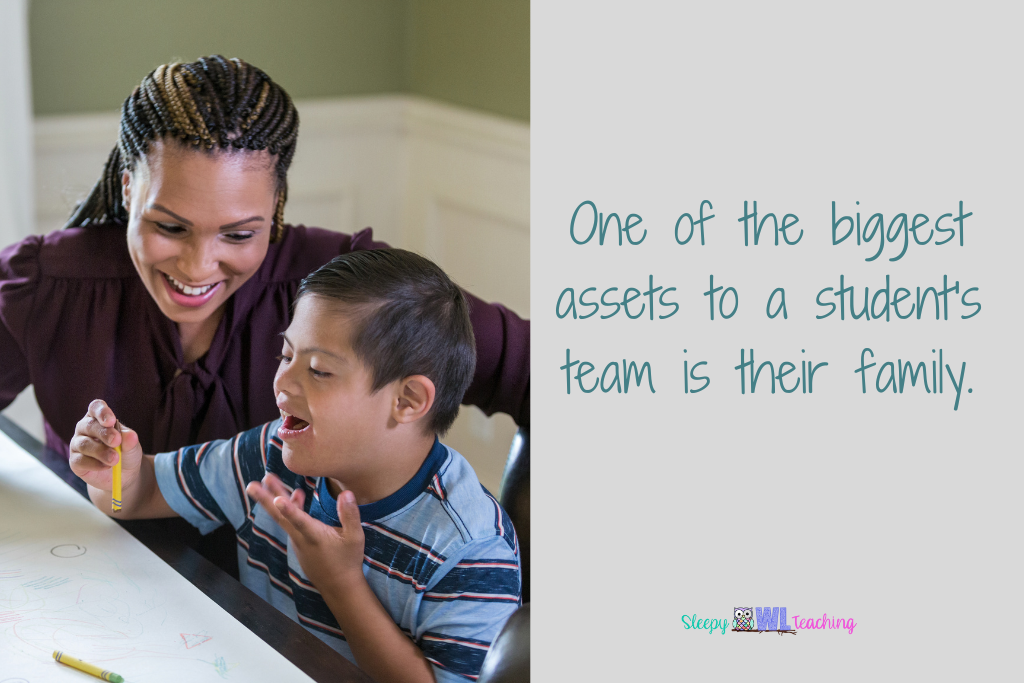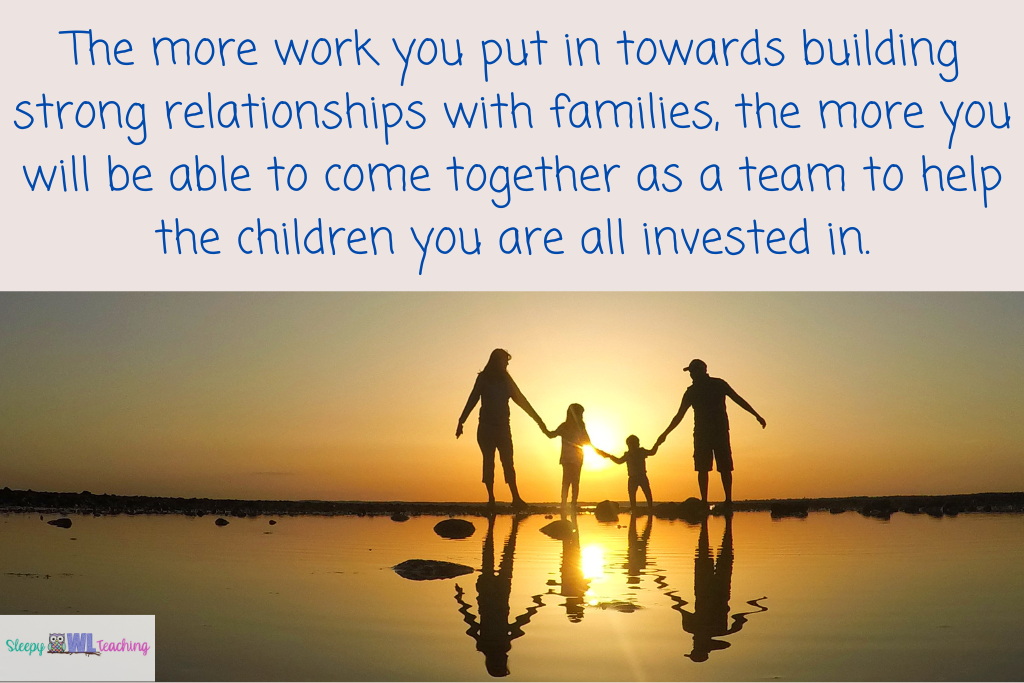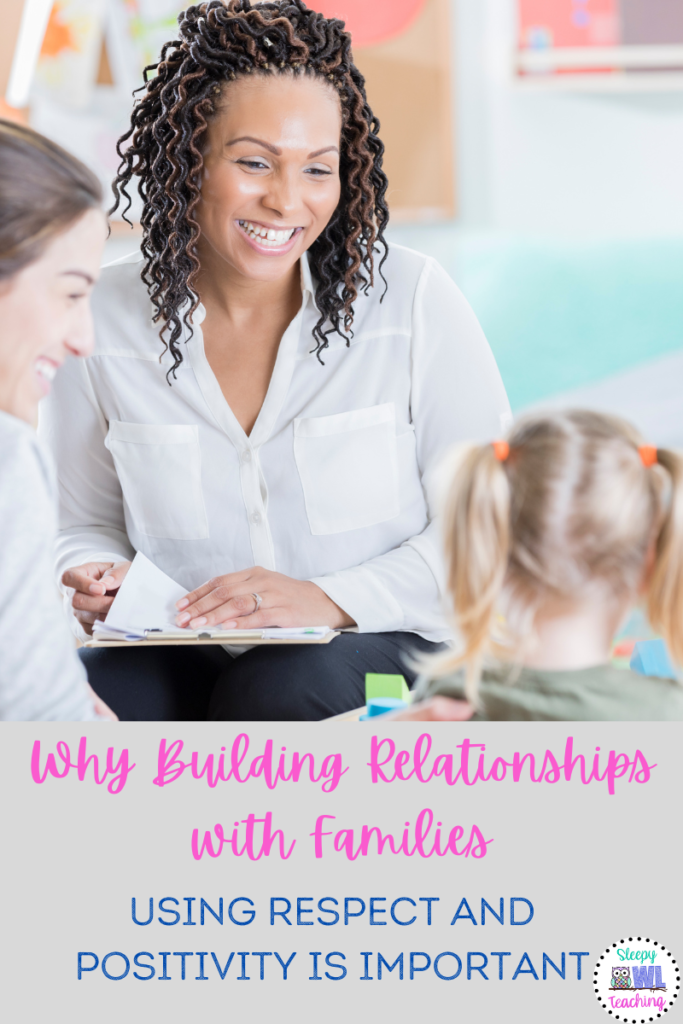In the previous few posts, we’ve been talking about building relationships as a teacher with your students. Some of the ways have been by using respect and positivity, helping them feel valued, and learning and using their interests. This post begins a mini-series on building relationships with parents and caregivers, why it is important, and how to do it.

Building Relationships with Families
One of the biggest assets to a student’s team is their family. Teachers come and go and have students on their caseloads for one or sometimes multiple years, but their families are forever and certainly know them best. Teachers have great knowledge of the teaching field, curriculum, and learning and behavior strategies. That is their wheelhouse. But families know their children and what works well and what they are interested in.
As I mentioned in this blog post, many times students in special education are unable to communicate with their families to tell them about their day or what they are learning. If parents don’t hear about it from their school team, this can cause anxiety and frustration. One of the best ways to mediate this is to communicate early and often. We will dig deeper into this in a future blog post. However, the key is treating parents with respect and also positivity.

Building Relationships with Trust and Respect
So how do we do this? How do we build relationships with our students’ families? It starts with respect from us. If we talk to our students’ families like we know everything there is to know and don’t need anything from them, it will start us off on the wrong foot. Treating families as valued members of the team means talking to them respectfully. Thanking them for a suggestion or letting them know that you received a communication and you will get back to them as soon as possible (ideally within 24 hours) rather than leaving them hanging lets them know that you are putting them as a priority and being respectful.
It happens in the education world that parents can come on strong. Frequent communication and constantly giving suggestions and seeking information happens. Families want to know details about curriculums being used, teaching strategies, social skills, etc. Sometimes they are unhappy with something that happened during the school day. When a family is having a hard time it is important to stay calm and treat them with respect. Some of the best phrases I have used are “I understand how you feel” or “I hear what you are saying”. As much as we need to extend patience and grace to our students, the same needs to be said for their families. Telling them that you acknowledge how they are feeling and will work to come to an understanding goes a long way towards building trust and respect between both parties.
Building Relationships with Positivity
As a parent, I can tell you that if the only thing I heard coming from my child’s school was “he blurts all day long and won’t raise his hand” or “he’s so messy he needs to work on their executive functioning skills” or “he keeps getting into fights on the playground” or even “I’ve talked to your child over and over again and things aren’t changing” I would be pretty sad. As a parent, you don’t want to think that your child’s teacher only thinks the worst of them.
Positivity goes a long way to reassuring parents that there may be work to do, but their child is in the right place with the right people. If your student has a daily communication log, make sure to write down at least one positive thing each day.
If I saw a note that said “your child had a hard time focusing in social studies today but when it was time for recess he held the door open for all of his class and the teachers and greeted each one” I would be thrilled. Yes, there are things to work on, but I know that my child is doing something kind and it is being recognized.
Reassurance helps as well. Let parents know that there are some things to work on but this is what their child is currently doing and this is how you will help. “I have all the faith in the world that this student will succeed” is a very powerful phrase. Using a positive tone in interactions with parents also helps in building the trust and understanding that you are there to help their child be the best they can be.
Building relationships take work. It’s not always easy. Some days you may want to put an away message up on your email and hide in your classroom. But remember, the more work you put in towards building strong relationships with families, the more you will be able to come together as a team to help the children you are all invested in.

Stay tuned for more information coming up on building relationships with families!
Interested in learning more? Check out these articles as well!
⭐️ 20 Tips for Developing Positive Relationships with Parents
⭐️ A Strategy for Building Productive Relationships with Parents
⭐️ 5 Ways Teachers Can Establish Positive Relationships with Parents

Do you have any tips and tricks for building relationships with families in special education? Do you have examples of why it is important? Let me know in the comments or find me on Instagram @sleepyowlteaching!
